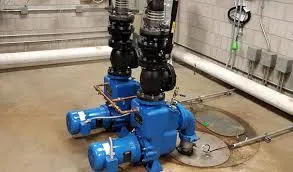Bantu
- Afrikaans
- Albanian
- Amharic
- Arabic
- Armenian
- Azerbaijani
- Basque
- Belarusian
- Bengali
- Bosnian
- Bulgarian
- Catalan
- Cebuano
- Corsican
- Croatian
- Czech
- Danish
- Dutch
- English
- Esperanto
- Estonian
- Finnish
- French
- Frisian
- Galician
- Georgian
- German
- Greek
- Gujarati
- Haitian Creole
- hausa
- hawaiian
- Hebrew
- Hindi
- Miao
- Hungarian
- Icelandic
- igbo
- Indonesian
- irish
- Italian
- Japanese
- Javanese
- Kannada
- kazakh
- Khmer
- Rwandese
- Korean
- Kurdish
- Kyrgyz
- Lao
- Latin
- Latvian
- Lithuanian
- Luxembourgish
- Macedonian
- Malgashi
- Malay
- Malayalam
- Maltese
- Maori
- Marathi
- Mongolian
- Myanmar
- Nepali
- Norwegian
- Norwegian
- Occitan
- Pashto
- Persian
- Polish
- Portuguese
- Punjabi
- Romanian
- Russian
- Samoan
- Scottish Gaelic
- Serbian
- Sesotho
- Shona
- Sindhi
- Sinhala
- Slovak
- Slovenian
- Somali
- Spanish
- Sundanese
- Swahili
- Swedish
- Tagalog
- Tajik
- Tamil
- Tatar
- Telugu
- Thai
- Turkish
- Turkmen
- Ukrainian
- Urdu
- Uighur
- Uzbek
- Vietnamese
- Welsh
- Bantu
- Yiddish
- Yoruba
- Zulu
Telephone: +86 13120555503
Email: frank@cypump.com
Sep . 29, 2024 03:20 Back to list
Froth Slurry Pump Manufacturing Facility for Efficient Transportation Solutions
Exploring the Innovations of Froth Slurry Pump Factories
In the realm of industrial processing, the efficient movement of materials is crucial for ensuring productivity and minimizing waste. One of the most significant challenges in the handling of abrasive and viscous materials is the effective pumping of frothy slurries. Froth slurry pumps play an essential role in various sectors such as mining, mineral processing, and wastewater treatment. This article delves into the advancements and operational frameworks of froth slurry pump factories, highlighting their significance in modern industrial applications.
Understanding Froth Slurry Pumps
Froth slurry pumps are specially designed to handle the unique challenges posed by slurries that contain a high amount of air or froth. These pumps must operate efficiently under conditions where traditional pumps would fail. The primary function of a froth slurry pump is to transport mixtures of solids and liquids, often characterized by high viscosity and low density. As a result, they require particular engineering solutions to ensure that they can handle the complex flow characteristics of frothy materials.
The Design and Engineering Process
The manufacturing of froth slurry pumps involves extensive research and development, where engineers focus on creating pumps that can withstand the erosive nature of the materials they handle. These pumps are typically constructed from robust materials such as hardened alloys or rubber-lined components to resist wear and tear. The design process also includes computational fluid dynamics (CFD) simulations to optimize the pump's hydraulic performance and predict how it will behave under real operational conditions.
Moreover, the pumps feature unique impeller designs that can efficiently handle a high volume of froth while minimizing the risk of cavitation, which can lead to pump failure. Understanding these intricate designs is vital for engineers who seek to develop pumps that not only meet but exceed industry standards.
Technological Advancements in Pump Manufacturing
Modern froth slurry pump factories are leveraging automation and smart technologies to enhance production efficiency and quality. The integration of robotics in the manufacturing process allows for precise machining of pump components, resulting in greater consistency and reduced human error. Additionally, advanced monitoring systems enable real-time tracking of the production line, ensuring that any potential issues can be promptly addressed.
froth slurry pump factory

In recent years, the adoption of Industry 4.0 principles has ushered in a new era of manufacturing. Factories now harness data analytics and the Internet of Things (IoT) to refine their processes and maintain high-quality standards. By collecting data on pump performance and wear rates, manufacturers can make informed decisions on maintenance schedules, ultimately extending the lifespan of their products and improving customer satisfaction.
Applications Across Industries
Froth slurry pumps are utilized in a multitude of industries, each with its unique requirements. In the mining sector, these pumps are essential for the transportation of slurry produced during ore extraction and processing. They help in the efficient recovery of valuable minerals while reducing the environmental impact associated with waste disposal.
In wastewater treatment facilities, froth slurry pumps mitigate the challenges posed by thick, aerated sludges, ensuring smooth and effective pumping of these complex mixtures. Furthermore, the chemical processing industry relies on these pumps to handle challenging materials during the production of various chemical products.
Importance of Customized Solutions
Recognizing that no two applications are the same, froth slurry pump factories often emphasize the importance of customization. Engineers work closely with clients to understand their specific needs and develop tailor-made solutions. This customized approach not only enhances operational efficiency but also ensures that the pumps are compatible with the unique characteristics of the materials being handled.
Conclusion
Froth slurry pumps play a pivotal role in the industrial landscape, with factories continuously innovating to meet the evolving demands of various sectors. As technology progresses, the design and manufacturing of froth slurry pumps are becoming increasingly sophisticated, enabling industries to transport challenging materials with greater efficiency and reliability. By investing in research, development, and customer-centric solutions, froth slurry pump factories are set to remain integral players in the realm of industrial processing, contributing significantly to productivity and sustainability across diverse applications.
-
Heavy-Duty Mining Sludge Pumps - Wear-Resistant Slurry Handling
NewsAug.02,2025
-
Horizontal Split Case Pump with GPT-4 Turbo | High Efficiency
NewsAug.01,2025
-
ISG Series Pipeline Pump - Chi Yuan Pumps | High Efficiency, Durable Design
NewsAug.01,2025
-
Advanced Flue Gas Desulfurization Pump with GPT-4 Turbo | Durable & Efficient
NewsJul.31,2025
-
ISG Series Vertical Pipeline Pump - Chi Yuan Pumps | Advanced Hydraulic Design&Durable Construction
NewsJul.31,2025
-
ISG Series Vertical Pipeline Pump - Chi Yuan Pumps | Energy Efficient & Low Noise
NewsJul.31,2025










